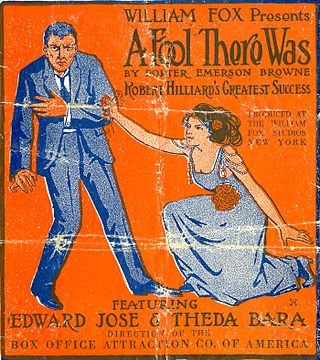
Shriners International, formally known as the Ancient Arabic Order of the Nobles of the Mystic Shrine (AAONMS), is an American Masonic society established in 1870 and is headquartered in Tampa, Florida.

In art history, literature and cultural studies, Orientalism is the imitation or depiction of aspects of the Eastern world. These depictions are usually made by writers, designers, and artists from the Western world. In particular, Orientalist painting, depicts the Middle East, and it was one of the many specialties of 19th-century academic art, and the literature of Western countries was influenced by a similar interest in Oriental themes.

Religious music is a type of music that is performed or composed for religious use or through religious influence. It may overlap with ritual music, which is music, sacred or not, performed or composed for or as ritual. Religious songs have been described as a source of strength, as well as a means of easing pain, improving one's mood, and assisting in the discovery of meaning in one's suffering. While style and genre vary broadly across traditions, religious groups still share a variety of musical practices and techniques.

Theda Bara was an American silent film and stage actress.

A femme fatale, sometimes called a maneater or vamp, is a stock character of a mysterious, beautiful, and seductive woman whose charms ensnare her lovers, often leading them into compromising, deadly traps. She is an archetype of literature and art. Her ability to enchant, entice and hypnotize her victim with a spell was in the earliest stories seen as verging on supernatural; hence, the femme fatale today is still often described as having a power akin to an enchantress, seductress, witch, having power over men. Femmes fatales are typically villainous, or at least morally ambiguous, and always associated with a sense of mystification, and unease.
Mizrahi Jews, also known as Mizrahim (מִזְרָחִים) or Mizrachi (מִזְרָחִי) and alternatively referred to as Oriental Jews or Edot HaMizrach, are a grouping of Jewish communities comprising those who remained in the Land of Israel and those who existed in diaspora throughout and around the Middle East and North Africa (MENA) from biblical times into the modern era.

Herbert Brenon was an Irish-born U.S. film director, actor and screenwriter during the era of silent films through the 1930s.
The various nations of the region include the Arabic-speaking countries of the Middle East, the Iranian traditions of Persia, the Jewish music of Israel and the diaspora, Armenian music, Kurdish music, Azeri Music, the varied traditions of Cypriot music, the music of Turkey, traditional Assyrian music, Coptic ritual music in Egypt as well as other genres of Egyptian music in general, It is widely regarded that some Middle-Eastern musical styles have influenced Central Asia, as well as the Balkans and Spain

The city of Jerusalem is sacred to many religious traditions, including the Abrahamic religions of Judaism, Christianity and Islam which consider it a holy city. Some of the most sacred places for each of these religions are found in Jerusalem and the one shared between all three is the Temple Mount.

A Fool There Was is an American silent drama film produced by William Fox, directed by Frank Powell, and starring Theda Bara. Released in 1915, the film was long considered controversial for such risqué intertitle cards as "Kiss me, my fool!"

Salomé is a 1918 American silent drama film produced by William Fox and starring actress Theda Bara.

James Gordon Edwards was a Canadian-born film director, producer, and writer who began his career as a stage actor and stage director.
Sidney M. Goldin, born Samuel Goldstein was an American silent film director as well as a prominent writer, actor and producer for Yiddish theater and Yiddish cinema during the early 20th century. During his career, he worked frequently with Molly Picon, Maurice Schwartz and Ludwig Satz in Europe and Palestine.

Monroe Silver was an American actor and singer who was also a comedian and monologist using a Jewish dialect-accent in his performances.

East Lynne is a 1931 American pre-Code film version of Ellen Wood's eponymous 1861 novel, which was adapted by Tom Barry and Bradley King and directed by Frank Lloyd. The film received an Academy Award nomination for Best Picture but lost to RKO-Radio's Cimarron. East Lynne is a melodrama starring Ann Harding, Clive Brook, Conrad Nagel and Cecilia Loftus.

A Woman There Was is a 1919 American silent South Seas drama film directed by J. Gordon Edwards and starring Theda Bara. The film is based on the short story "Creation's Tears", by George James Hopkins. Bara portrays Zara, the daughter of a South Seas island tribal chief, who falls in love with a missionary and is killed after helping him escape.

The Siren's Song is a 1919 American silent drama film directed by J. Gordon Edwards and starring Theda Bara. It is not known whether the film currently survives, and it may be a lost film.

When Men Desire is a 1919 American silent drama film directed by J. Gordon Edwards and starring Theda Bara. It is presumed to be a lost film.

The Blue Flame is a four-act play written by George V. Hobart and John Willard, who revised an earlier version by Leta Vance Nicholson. In 1920, producer Albert H. Woods staged the play on Broadway and on tour across the United States. Ruth Gordon, the main character, is a religious young woman who dies and is revived by her scientist fiancé as a soulless femme fatale. She seduces several men and involves them in crimes, including drug use and murder. In the final act, her death and resurrection are revealed to be a dream. The production starred Theda Bara, a popular silent film actress who was known for playing similar roles in movies.

Ben Deeley born J. Bernard Deeley also credited as Ben Deely, was an American actor and composer.